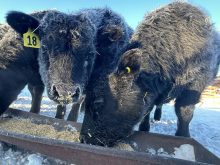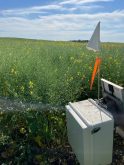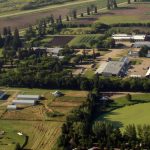The number of acres too wet to seed doubled this year, according to Manitoba Agricultural Services Corporation data.
The agency estimates 237,799 acres weren’t planted in 2013 because of excessive moisture, versus 117,623 acres a year ago.
“Provincially that’s not a very significant number, but we saw most of it in the southwest,” said David Van Deynze, the corporation’s claim services manager. “Relative to the rest of the province they were wetter for sure.”
Some excess moisture claims have yet to be settled, and the corporation won’t release the final cost of claims until it does, Van Deynze said.
Read Also

Ship’s turning for gene-edited crops
More and more countries have decided that gene-edited crops will be treated the same as conventional plant breeding.
Still the situation is a far cry from 2011, when widespread flooding meant a record three million acres were too wet to seed.
“We had a number of reseed claims this year but nothing out of the ordinary,” Van Deynze said.
Many of those claims came because winter wheat seeded last fall didn’t survive.
“Poor germination conditions led to high winterkill,” said Doug Wilcox, the corporation’s agronomy and program development manager. “It wasn’t a severe winter that killed it, it was the poor fall (growing) conditions. Being dry led to poor winter carry-over.”
Hail claims are about normal so far, Van Deynze said. The worst-hit area was near Reston, with a smattering from around the rest of the province, he said.















